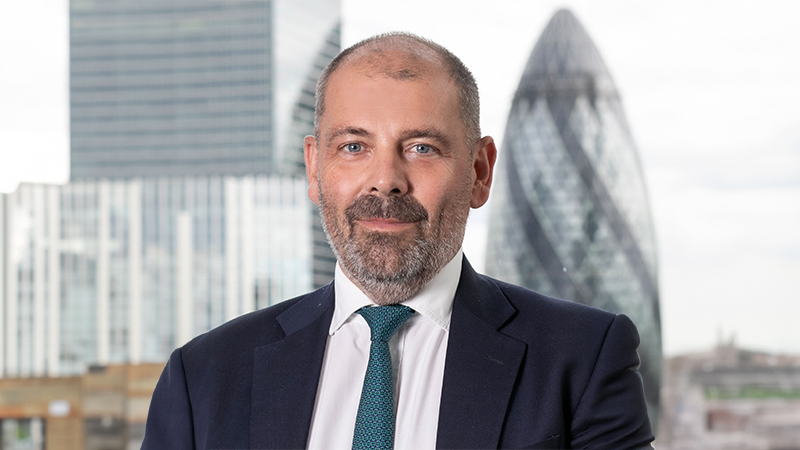Asset management firms that have signed the net zero pledge are in for a bumpy ride as the targets and measurement standards needed to meet this commitment are yet to be put in place.
So far 128 investors, collectively managing $43trn in assets, have joined the Net Zero Asset Managers initiative. These include Amundi, Franklin Templeton, HSBC Asset Management and Blackrock, among others.
In becoming signatories, the companies pledge to work with clients to reach net zero emissions alignment across their portfolios by 2050, with interim emissions reductions targets set for 2030.
However, according to Pooja Khosla (pictured), PhD, vice president client development at climate risk analytics company, Entelligent, the GPS that can route, guide, and track this journey is still missing.
“Organisations and businesses are increasingly signing the net zero pledges with very long-term goals, without setting quarterly targets, missing standardised measurement standards, with very restrictive definitions and without considering the capacity constraints,” she says. “There is too much focus on the destination and too little focus on the journey.”
See also: 41 firms join Net Zero Asset Managers initiative
Khosla adds that the net zero goal, which means that emission production must match emission reductions, needs participation across the board, including stakeholders, corporations, consumers, and investors.
“The journey to net zero will not be linear and smooth. In fact, the industry very much will go through multiple socio-economic and policy shocks imposed to speed up carbon reductions to reach the desired climate targets. It is very important to gauge, measure and calculate the capacity and resiliency of economic sectors and corporations on this unpredictive and bumpy road towards the net zero,” she explains. “We need more planning, pledges, policies, and processes on the journey rather than the destination of net zero.”
Setting the targets
The Net Zero Asset Managers Initiative is one of several international groups, including Asia Investor Group on Climate Change, CDP, Ceres, Investor Group on Climate Change, Institutional Investors Group on Climate Change and Principles for Responsible Investment, with aims to galvanise capital allocation and deliver the goals of the Paris Agreement.
Only eight months in and the initiative now represents nearly half of the entire asset management sector globally.
Hugh Yarrow, co-founder and portfolio manager at Evenlode Investment, one of the latest companies to sign up, says: “The investment management community has a very important role to play in supporting, encouraging, and accelerating the transition to a low-carbon economy. We are developing a detailed climate action plan including interim targets and an engagement and voting policy that sets out how we will align our investment portfolios to net zero.”
For Evenlode, work behind the scenes started almost a year before pledging to the initiative. In 2019, the company began measuring the direct and indirect emissions it was financing through investments made. In 2020, this analysis was strengthened by the alignment of the company’s methodology to the Partnership for Carbon Accounting Financials guidance.
See also: Avoiding the ‘sixth great extinction’: Addressing biodiversity loss through investing
UK struggling to keep up with impacts of climate change
With almost 30 years to go, hitting the required targets for any business looking to be net zero by 2050 may seem an achievable goal. However, an independent report published by the Climate Change Committee has found the UK is already struggling to keep up with the impacts of climate change.
Following its report, the committee called on the UK government to take immediate action, adding that the longer these changes take, the greater the cost of managing the negative effects that climate change brings.
At the recent G7 Summit, leaders committed to phase out coal-fired power and pledged $100bn to help low-income nations to decarbonise.
The leaders also put together and agreed on the nitty gritty of how we reach net zero greenhouse emissions by 2050 and committed to introduce mandatory climate reporting.
See also: Deirdre Cooper: ‘The decarbonisation journey is literally just starting’
Environmental metrics will be as important as alpha, beta and tracking errors
For Khosla, however, there is also a significant role in achieving net zero transitions for investors as crucial stakeholders.
“Investors with their power to shift the capital markets towards financing both climate change transitions and sustainable business opportunities will be more scrutinised from both policy makers and clients,” she says. “The environmental factsheet will become an integral addendum to the financial factsheet. It will be necessary for investors to learn the art and science of climate reporting and presenting environmental additionality. Metrics such as carbon footprint, carbon exposures and revenues per carbon will join the leading financial metrics such as alpha, beta and tracking errors.”
In addition, Khosla says investment decisions will likely become guided by climate focused factors and climate stress testing.
“It will be critical for investors to de-risk the portfolios from climate physical risk, climate transition risk and climate reputational risk. For this information, investors will rely much more on independent data providers and evaluators for un-skewed and unbiased evaluations of their investment targets and portfolios.”
Finally, she suggests that both cash and carbon metrics will become integral to investment decision making. “Return on investment and return on environment together will guide investment decisions and performance,” she says.











